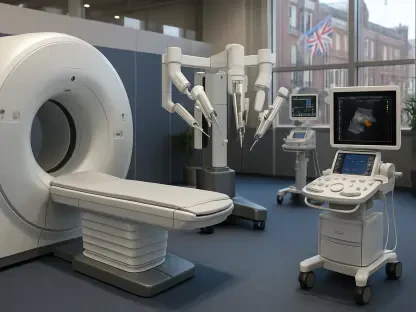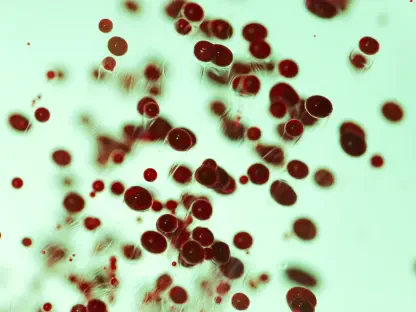The humanitarian crisis in the Gaza Strip has intensified amidst Israeli-imposed restrictions on essential medical supplies, posing severe challenges to local healthcare systems. Following Israel’s military campaign launched on October 7, 2023, Gaza has witnessed devastating levels of violence, resulting in high civilian casualties and extensive infrastructure damage. The United Nations reported over 57,012 Palestinian deaths and about 134,592 injuries as of July 2025, highlighting the dire situation. Gaza’s health facilities are struggling at the brink despite their arduous efforts, largely due to both direct conflicts and systematic restrictions hampering their ability to secure necessary medical resources. The plight of Gaza’s 2.1 million residents underlines the compounded humanitarian catastrophe they face, exacerbated by persistent supply blockades and administrative barriers imposed by Israel.
A Deepening Humanitarian Crisis
The situation in Gaza has progressively worsened, transforming from a dire humanitarian concern into a full-scale health crisis. The healthcare system, already in a precarious state before Israel’s military campaign, has been pushed to the edge. Destruction of vital medical infrastructure and restricted entry of critical supplies have been instrumental in creating an environment where life-saving medical interventions become nearly impossible. The immense toll on civilians is reflected in sobering statistics. Hospital corridors overflow with the injured, who are victims of not only external hostilities but also of a system struggling under crippling constraints. Hospitals, often under threat themselves, find their capacity stretched beyond limits. Resources that have already been scarce are nearly exhausted due to intensified demand and ongoing violence. However, the crisis is not confined merely to physical injuries, as psychological distress escalates amidst the conflict, creating further pressure on an overstretched health system.
The Strain of Medical Supply Restrictions
Israeli-imposed restrictions on medical imports, governed by a “dual-use” item policy, have curtailed the flow of essential medical supplies into Gaza. This policy aims ostensibly to prevent military use of these items, but its sweeping and often arbitrary application has hindered healthcare providers from acquiring even the most basic necessities. Critical items like anesthesia and pain management drugs are regularly denied entry, leaving caretakers to perform surgeries under dire conditions, often without adequate pain relief for patients. The restrictions extend further, affecting orthopedic tools and basic care supplies such as gauze and medical dressings. The opacity and capriciousness surrounding the “dual-use” policy exacerbate the difficulties faced by healthcare professionals, who must navigate a labyrinth of administrative barriers in their desperate attempts to help. These impediments highlight the stark contradiction in providing care—a commitment constantly thwarted by policies that do not acknowledge urgent humanitarian needs.
Personal Testimonies and Systemic Challenges
Healthcare professionals, both international and local, have shared painful testimonies underscoring their daily challenges. Their accounts reveal the staggering extent to which the supply restrictions have undermined medical care. Dr. Mike Mallah’s experience with a young patient encapsulates the dire consequences. Denied anesthesia during critical surgery, the procedure exposed both the patient and medical staff to traumatic experiences. This situation is far from unique. Healthcare workers routinely perform procedures under suboptimal conditions due to severe supply shortages. They recount stories of innovation borne from necessity, yet each adaptation serves as a somber testament to the systemic failures they endure daily. The dedication of these professionals shines through amid adversity, but their efforts cannot mask the tragic consequences imposed by administrative and logistical hurdles beyond their control. Their experiences provide a window into the acute reality faced by Gaza’s health infrastructure, a frontline battle for survival against overwhelming odds.
Legal and Ethical Implications
The situation in Gaza also raises critical legal and ethical concerns, as Israel’s actions stand scrutinized under international law. As the de facto occupying power, Israel bears specific obligations to ensure the well-being of Gaza’s civilian population, including the provision of necessary medical care. These restrictions constitute not only a grave humanitarian crisis but also a potential breach of international law, which mandates the occupying power to facilitate humanitarian assistance and uphold the health needs of the people. The disparity between legal obligations and the current blockade reflects a broader ethical failure across multiple levels. The international community is called to evaluate these actions critically, recognizing the long-standing blockade’s contribution to the ongoing humanitarian disaster. While legalities form the framework for potential accountability, the broader ethical dimension underscores an urgent necessity to reevaluate actions that disproportionately affect vulnerable populations.
Effects on Residents and Infrastructure
The compounded effects of restricted medical supplies, alongside ongoing violence, have left Gaza’s healthcare system verging on collapse. Burdened by the physical and psychological trauma from conflict, the community faces an uphill struggle against chronic diseases and widespread malnutrition—a byproduct of the unhealthy living conditions exacerbated by the blockade. With their already strained capacity reaching a breaking point, health facilities wrestle with mounting demands from traumatized individuals seeking critical care. The restrictions aggravate the situation further by limiting essential medications and nutritional support, thwarting efforts to manage not only immediate trauma but long-term public health concerns. Widespread nutritional deficiencies impact patient recovery and immunological resilience, heightening vulnerability to diseases and further complicating an overburdened healthcare response. Residents bear the brunt of these compounded challenges, grappling with the stark reality where basic health needs remain unmet, and the aspiration for quality healthcare appears ever more distant.
Path Forward: Addressing the Crisis
Addressing the healthcare crisis in Gaza demands a comprehensive strategy that engages multiple stakeholders. A top priority is ensuring unrestrained access for humanitarian aid, which requires revisiting “dual-use” lists to facilitate the transport of vital medical supplies. Establishing trustworthy systems for independent oversight is also crucial to ensure transparency throughout the process. International organizations must play a pivotal role, both in support and by exerting pressure, to create a system that aids healthcare providers in overcoming constant obstacles. Beyond the logistics of supply, halting any hostilities targeting healthcare facilities is essential. Protecting and rehabilitating these structures should be a universal concern, given their critical role in community resilience.
The global community must prioritize lasting solutions that focus on human welfare and dignity. The ongoing healthcare crisis in Gaza, worsened by supply chain restrictions, underscores the need for widespread global efforts to improve conditions for both patients and medical professionals. Despite the heroic efforts of healthcare workers in dire circumstances, systemic obstacles have severely limited their ability to offer life-saving services, leading to preventable suffering. Immediate action by international partners is key, aiming to ensure unrestricted aid access and tackle the crisis’s underlying structural issues, thus paving the way for sustainable relief and recovery for Gaza’s people.









